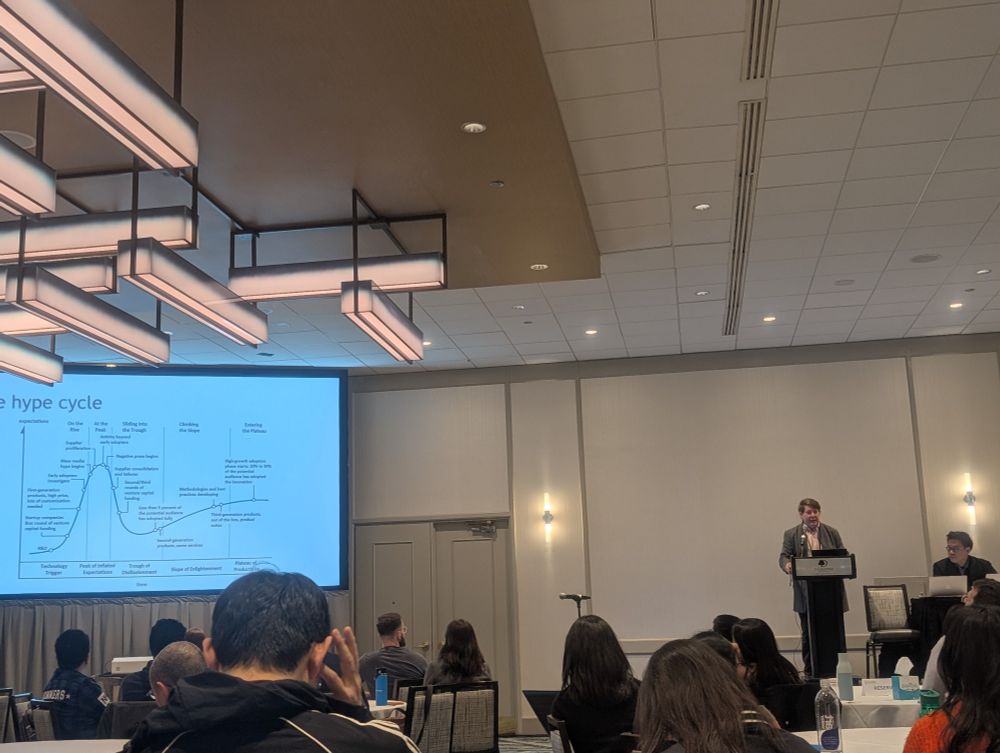by Rebecca Sear — Reposted by: Mohammad Atari, Lesley A. Hall

Reposted by: Mohammad Atari
What people learn from punishment: A cognitive model

Reposted by: Mohammad Atari
"Agency and the Organization of Human Experience."
More info and abstract here: ow.ly/usIc50X4wS7
Zoom Link: pitt.zoom.us/j/96906545761

Reposted by: Mohammad Atari
For lab info, check out our (though it’s mostly me atm) website: www.abdoelnakouri.com

Reposted by: Mohammad Atari, Brian A. Nosek, John Drury
Reposted by: Mohammad Atari, Larry W. Hunter

Reposted by: Mohammad Atari

Reposted by: Mohammad Atari

Reposted by: Mohammad Atari

Thanks to @edouardmachery.bsky.social and team.
Reposted by: Mohammad Atari

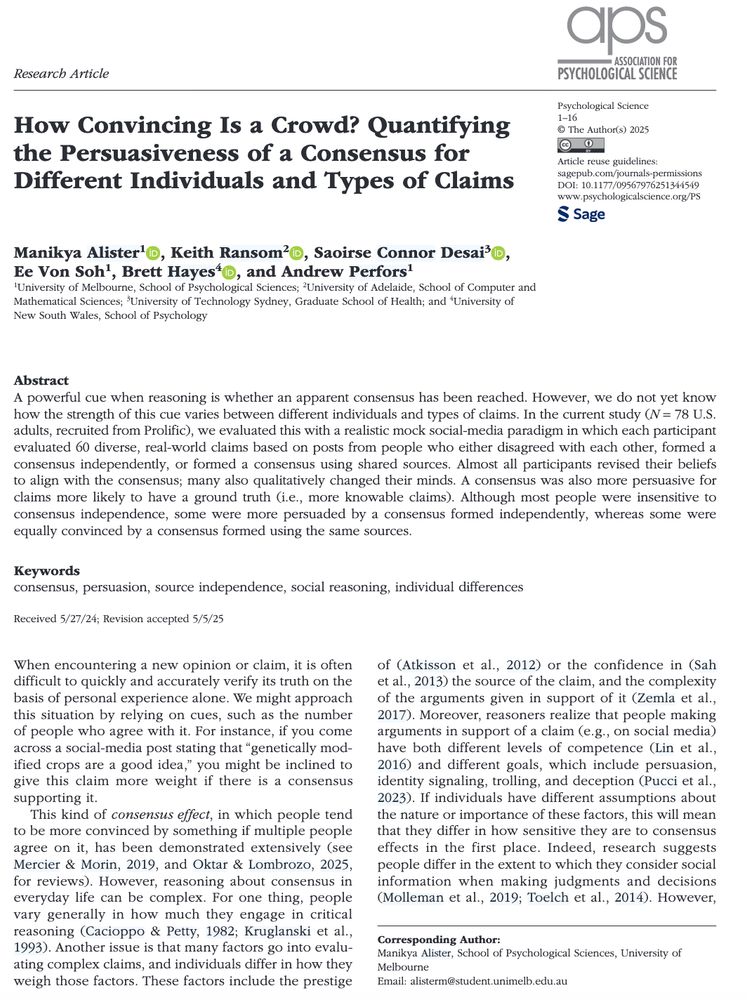
Led by the fantastic @margaretrwelte.bsky.social and Jas Cloutier!
@apajournals.bsky.social @spspnews.bsky.social @sansmeeting.bsky.social #PsychSciSky #SocialPsyc #AcademicSky
psycnet.apa.org/record/2026-...
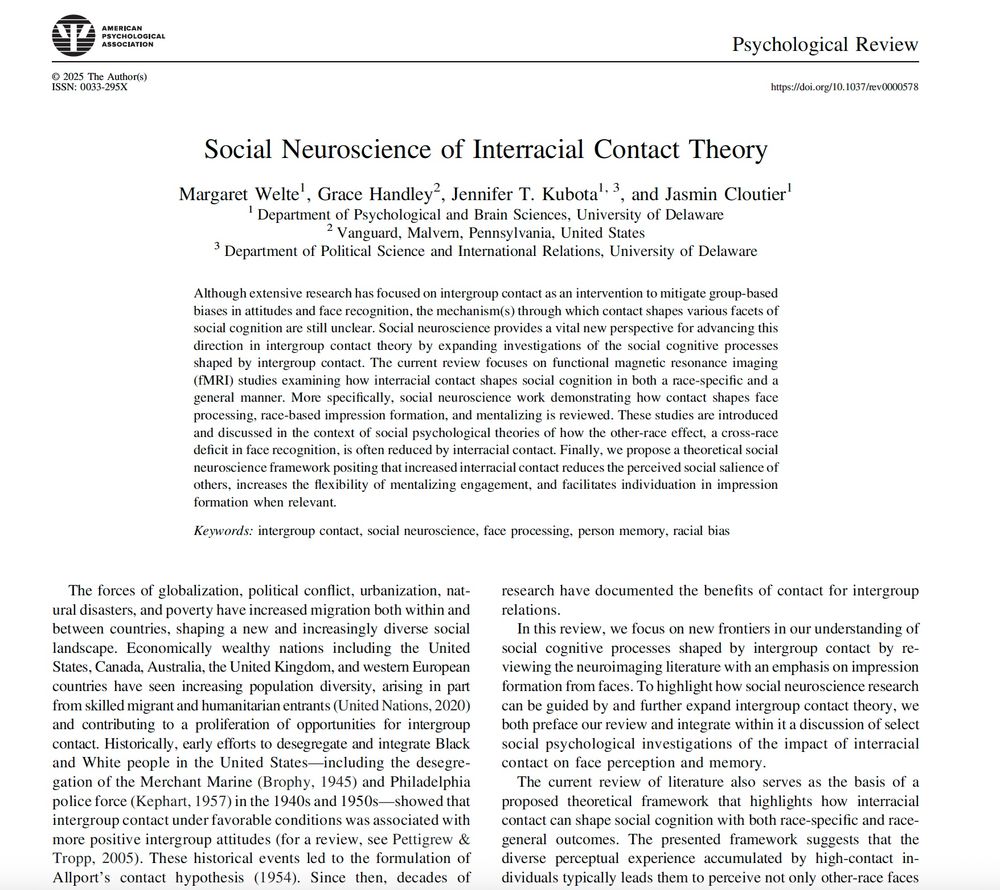
Because super-users are so active, they dominate our collective impression of the internet www.theguardian.com/books/2025/j...

Reposted by: Mohammad Atari, Mark J. Brandt
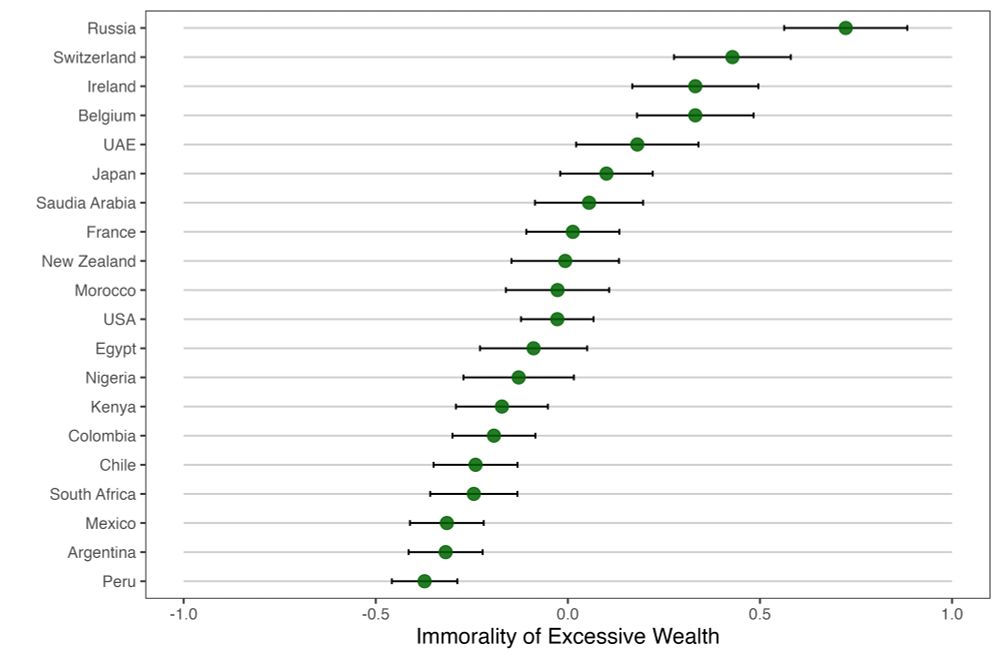
Reposted by: Mohammad Atari, Martin Lang
Mohammad Atari: mohammadatari.com
Catherine Molho: catherinemolho.github.io
Daniel Redhead: www.rug.nl/staff/d.j.re...
Julia Stern: www.uni-bremen.de/en/pppd/team...
Reposted by: Mohammad Atari, Linda J. Skitka, Melissa J. Williams
We apply computational text analysis to over 2000 years of historical corpora in Classical Chinese. Beyond descriptives, we test the hypothesis that kin-based institutions shape important aspects of socio-cooperative psychology.

In a new paper just published in PNAS Nexus, this is what we did: academic.oup.com/pnasnexus/ar...
Short version: It didn't really work.
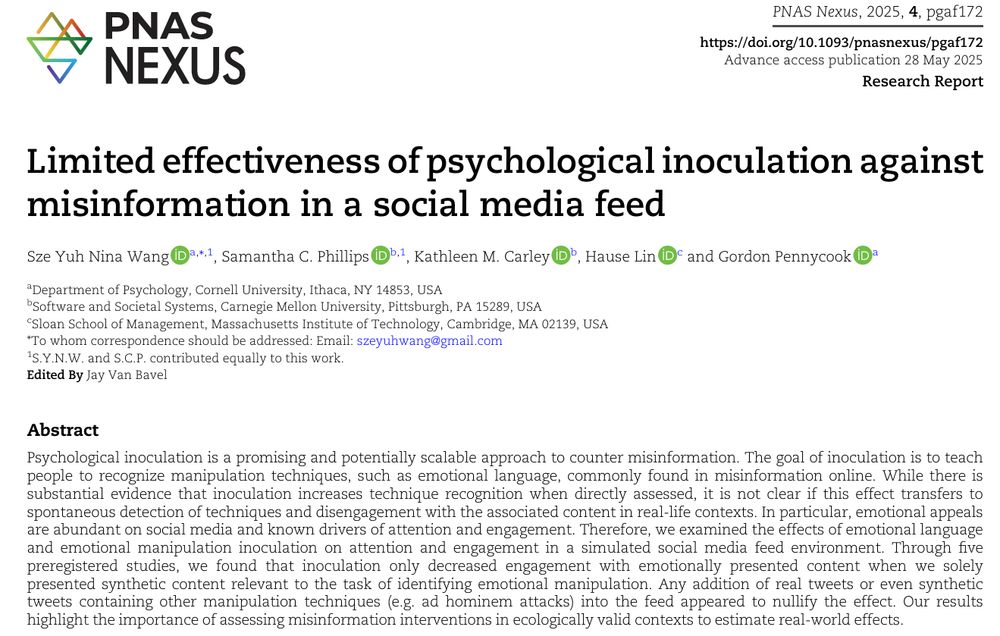
Reposted by: Mohammad Atari
www.nature.com/articles/s41...
The chronospatial revolution in psychology.
With Joe Henrich & Jonathan Schulz.
www.nature.com/articles/s41...
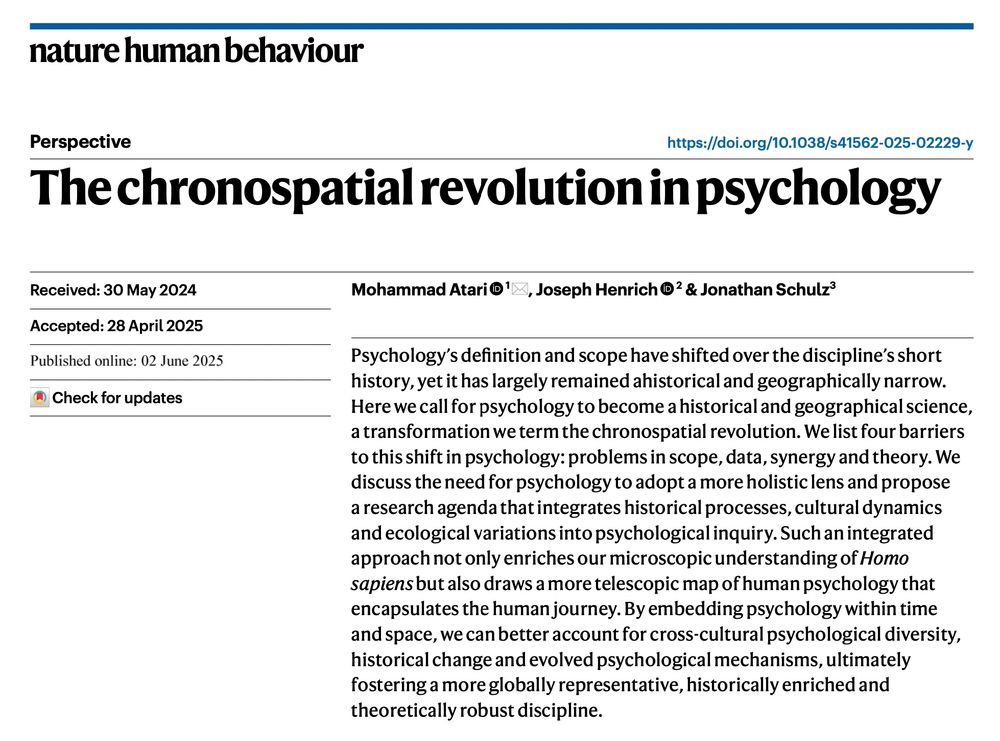
Reposted by: Mohammad Atari, Andrew Livingstone, Jeremy Ginges

We review (and encourage) historical and geographical research on morality from a pluralistic perspective.
Link:
doi.org/10.1080/1046...
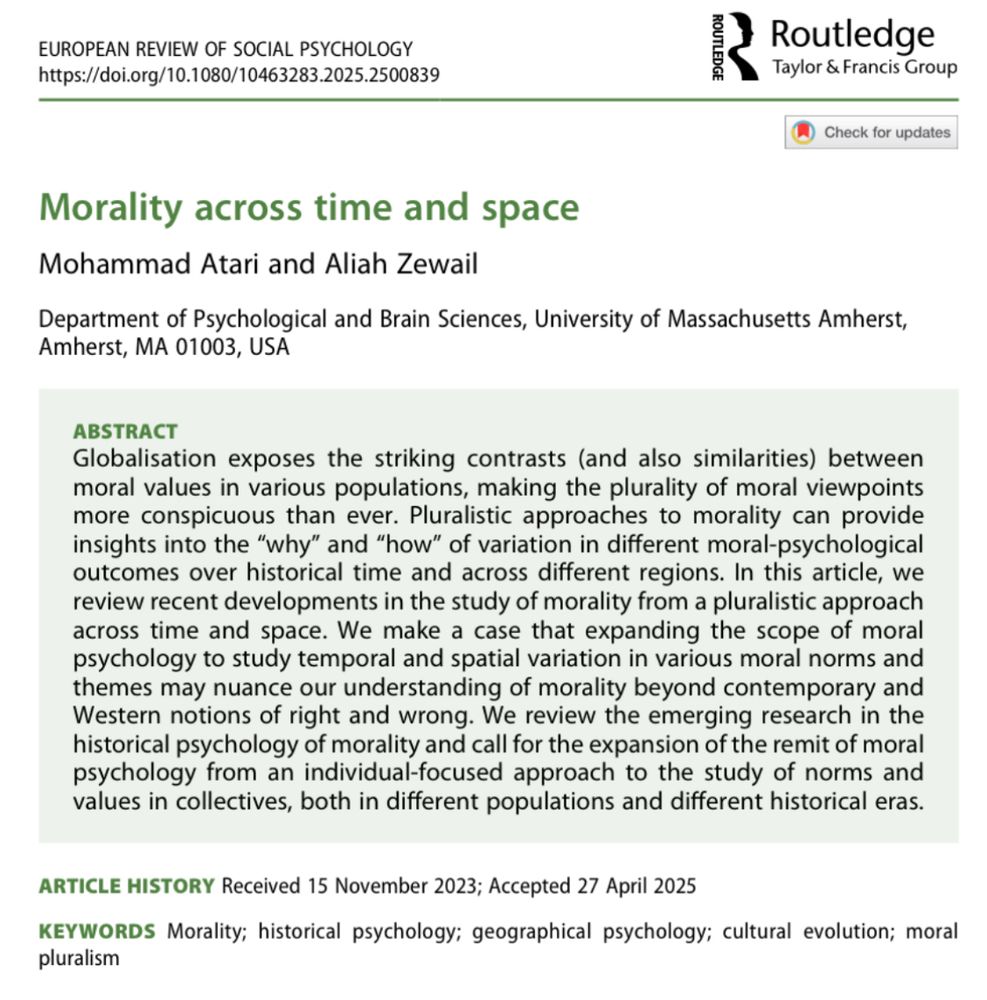
Reposted by: Mohammad Atari
Digitial divides of decades past embodied in training data and design.
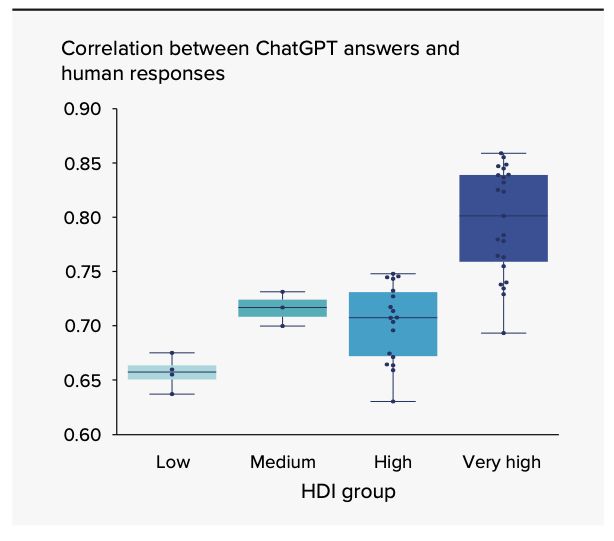
Reposted by: Mohammad Atari, Arvind Narayanan
The United Nations 2025 Human Development Report: "A matter of choice: People and possibilities in the age of AI" 🧵
hdr.undp.org/content/huma...
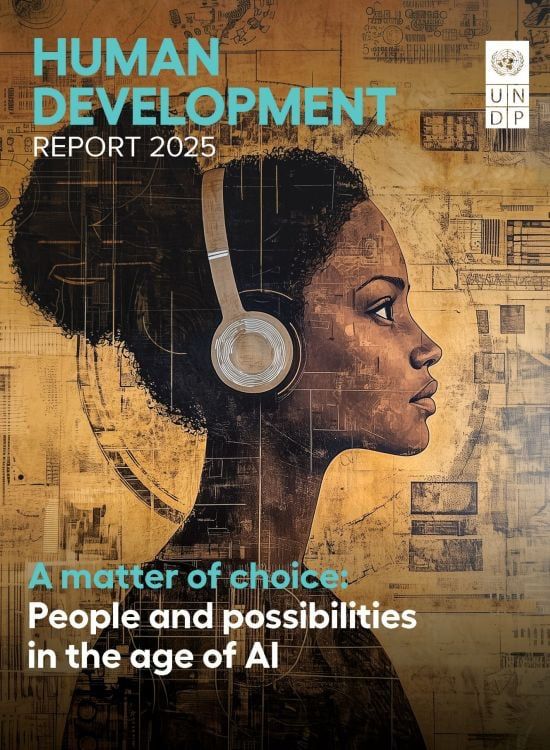
Reposted by: Mohammad Atari, Nathan Nunn
Dr. Atari makes the case for “less is more,” while Dr. Thornton champions the potential of neural networks in tackling complex analyses. #SANS2025

